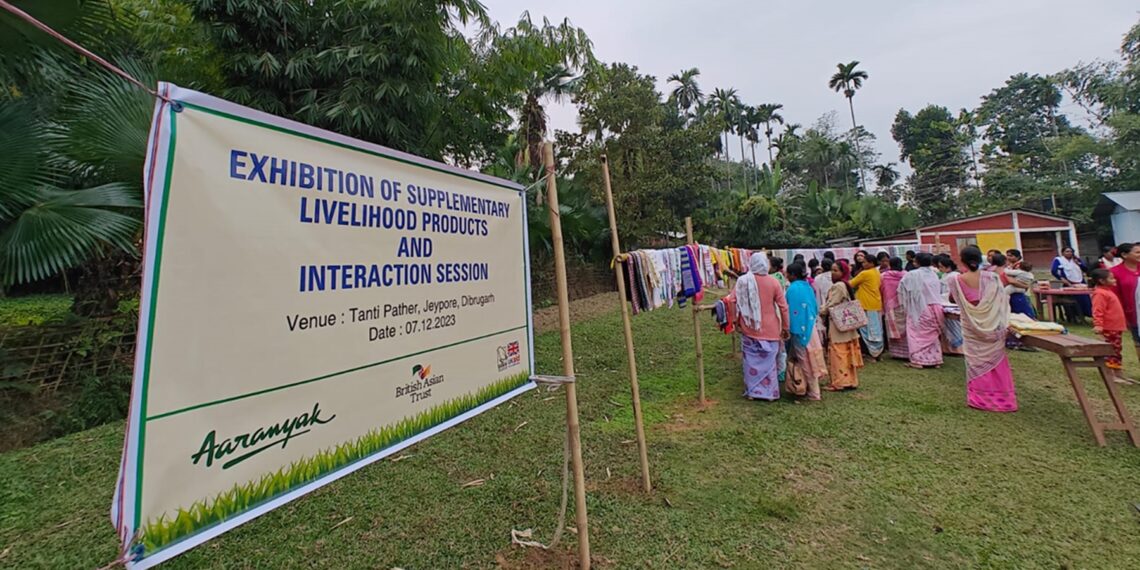GUWAHATI: In a small yet significant step toward conservation and sustainable living, the women of Tanti Pather, Konwabam, and Kamargaon villages in Dibrugarh district showcased their exceptional handloom products and homemade edibles.
The exhibition not only highlighted the talents of the village women, but also marked a positive outcome of the collaborative efforts of biodiversity conservation organisation, Aaranyak and British Asian Trust.
The initiative, aimed at steering villagers away from dependency on forest-based products, serves the greater interest of wildlife habitat conservation.
The event, held recently, witnessed the vibrant display of traditional Assamese handloom products, including mekhela chador, eri shawls, gamosas, stoles, as well as an array of pickles and baked goods.
Belinda Stewart Cox and Auro Shashwat from the British Asian Trust, accompanied by Aaranyak’s team, including senior scientist Dr Bibhuti Prasad Lahkar and senior conservation biologist Dr Alolika Sinha, among others, graced the event and explored the craftsmanship of the villagers.
The project, sponsored by the Darwin Initiative (UK Aid), has provided alternative livelihood options to the villagers.
By offering support, the initiative aims to break the cycle of dependence on forest resources for income, fostering cooperation in coexisting with wild elephants.
Thirty-five beneficiaries proudly exhibited their creations, showcasing the results of their dedication and hard work.
The event was not only a display of products but also an interactive session, allowing the villagers to engage with officials from the British Asian Trust and Aaranyak.
More than just an exhibition, this initiative signifies a step towards sustainable living, wildlife conservation, and the empowerment of local communities.















